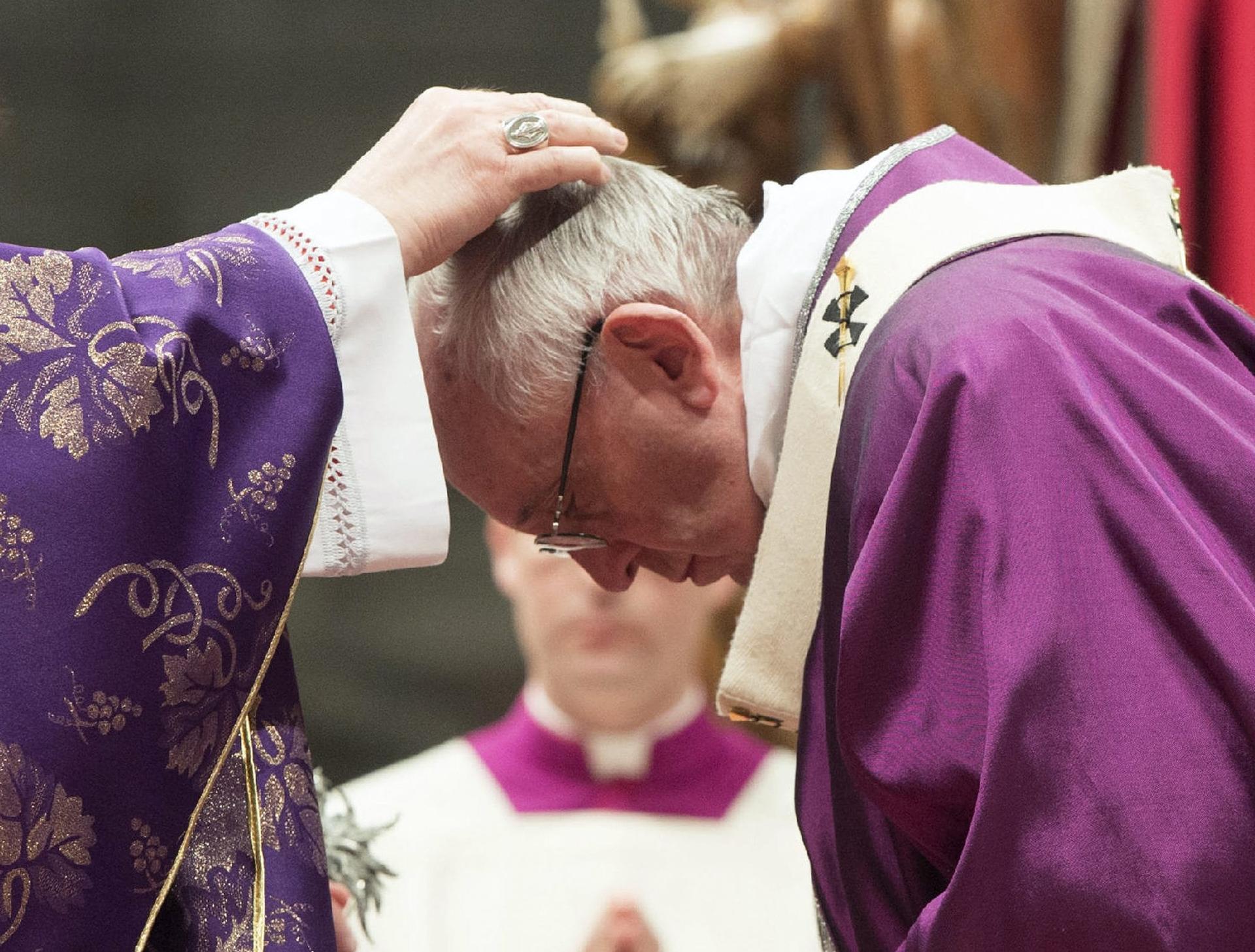ROME—In his annual Lent message, Pope Francis reminds the wealthy and all those who ignore their less fortunate neighbors that the rich man in the Gospel, when suffering the “torments of the afterlife,” begs for a poor man to alleviate his suffering with a drop of water.
“What the rich man asks of Lazarus after the two have died, “is similar to what he could have done [in his earthly life] but never did.”
This year’s reflection is based on the theme “The Word is a gift. Other persons are a gift,” and Francis draws most of his material from the parable of the rich man and Lazarus from Luke’s Gospel.
As the pontiff points out, in this text the wealthy man is anonymous, while the poor man receives a “name full of promise, which literally means ‘God helps’.”
Lazarus, the pope writes, “appears as an individual with his own story. While practically invisible to the rich man, we see and know him as someone familiar. He becomes a face, and a such, a gift, a priceless treasure, a human being whom God loves and cares for, despite his concrete condition as an outcast.”
Francis, who’s often called for some of the world’s most evident human crises, such as immigration and modern day slavery, to be told not by statistics but as human stories, writes that “Lazarus teaches us that the other persons are a gift.”
For instance, this is what he shared on Twitter last year, as he was headed to the Greek island of Lesbos, to “put faces” to the immigrant crisis.
Refugees are not numbers, they are people who have faces, names, stories, and need to be treated as such.
— Pope Francis (@Pontifex) April 16, 2016
“Lazarus teaches us that other persons are a gift,” the pope wrote in his Lenten reflection, released by the Vatican on Tuesday. “Even the poor person at the door of the rich is not a nuisance, but a summons to conversion and to change.”
Lent, the pope insists, is a good time for opening the doors “to all those in need and recognizing in them the face of Christ.”
Yet, when the biblical passage describes the rich man, no name is given to him. He’s described as someone who wore purple robes, at the time more valuable than silver or gold, and who was “clearly ostentatious” about his wealth, feasting “sumptuously” every day.
In the rich man, Francis wrote, “we can catch a dramatic glimpse of the corruption of sin, which progresses in three successive stages: love of money, vanity and pride.”
According to the pontiff, this character makes the passage from Matthew’s Gospel in which the love of money is “bluntly” condemned understandable.
“No one can be the slave of two masters: he will either hate the first and love the second, or be attached to the first and despise the second. You cannot be the slave both of God and of money’,” the pope wrote, quoting the Gospel.
Hence, the Lent season “urgently calls us to conversion,” with Christians being asked to return to God. “Jesus is the faithful friend who never abandons us.”
The papal message is divided in three short sections: The other person is a gift, sin blinds us and the word is a gift.
On the last one, Francis writes that the liturgy of Ash Wednesday, which marks the beginning of Lent, is an invitation to an experience similar to that of the rich man. During the celebration, the priest imposes ashes in the heads of the faithful saying “Remember that you are dust, and to dust you shall return.”
In the parable of the rich man and Lazarus, the two die and in the afterlife, the pope says, “a kind of fairness is restored and life’s evils are balanced by good.”
The pope closes his message with an appeal for the Holy Spirit to “lead us on a true journey of conversion, so that we can rediscover the gift of God’s word, be purified of the sin that blinds us, and serve Christ present in our brothers and sisters in need.”
In his annual reflection, Francis also encourages Catholics to share in the many Lenten Campaigns promoted by local churches everywhere, as a way to “favor the culture of encounter in our one human family.”
Lent is a 40-day period of fasting, prayer, and repentance that begins on Ash Wednesday and serves as preparation for Easter Sunday, April 16. For Latin-rite Catholics, this year it begins March 1.






